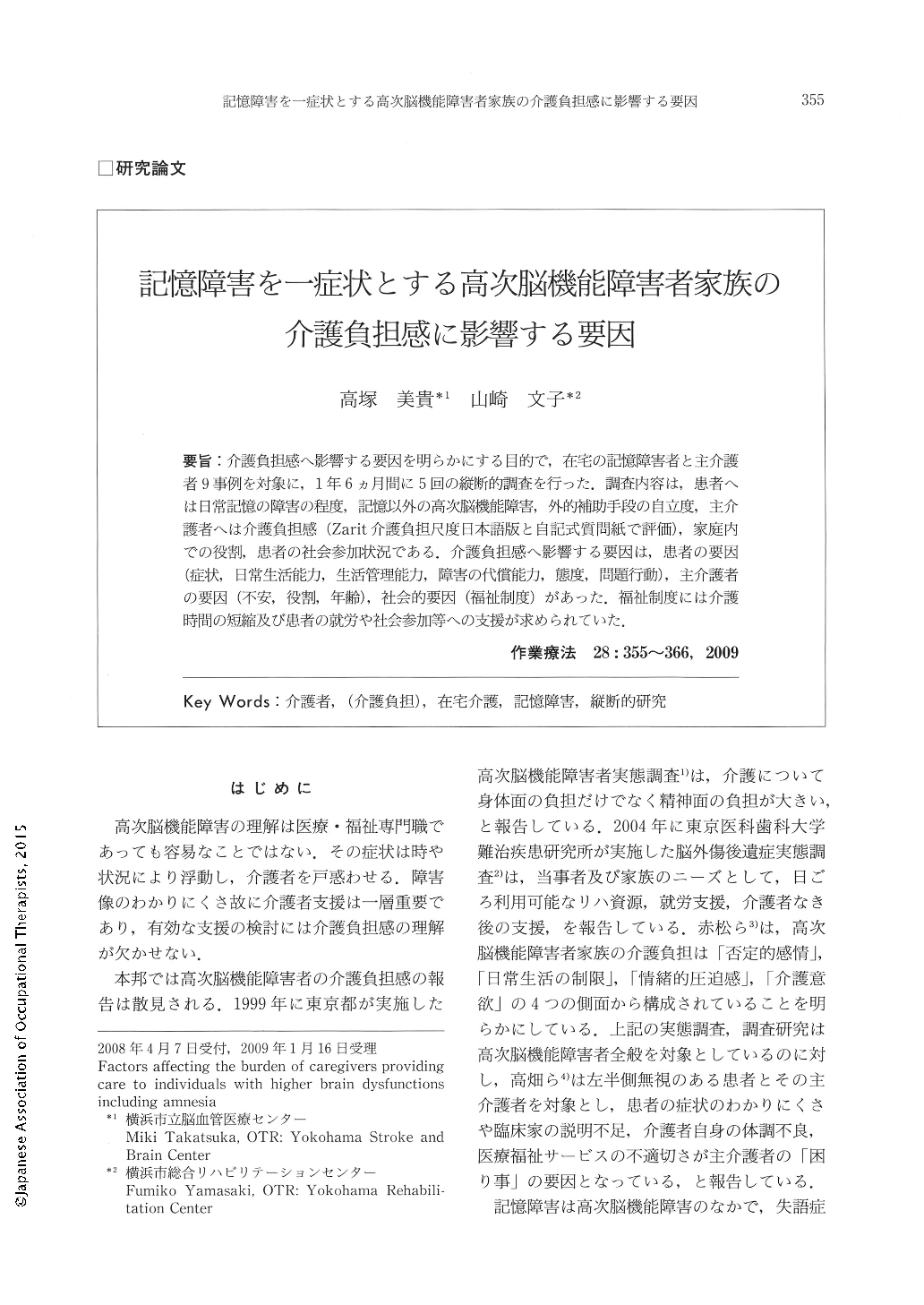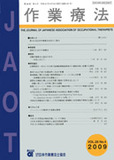Japanese
English
- 販売していません
- Abstract 文献概要
- 1ページ目 Look Inside
- 参考文献 Reference
- サイト内被引用 Cited by
要旨:介護負担感へ影響する要因を明らかにする目的で,在宅の記憶障害者と主介護者9事例を対象に,1年6ヵ月間に5回の縦断的調査を行った.調査内容は,患者へは日常記憶の障害の程度,記憶以外の高次脳機能障害,外的補助手段の自立度,主介護者へは介護負担感(Zarit介護負担尺度日本語版と自記式質問紙で評価),家庭内での役割,患者の社会参加状況である.介護負担感へ影響する要因は,患者の要因(症状,日常生活能力,生活管理能力,障害の代償能力,態度,問題行動),主介護者の要因(不安,役割,年齢),社会的要因(福祉制度)があった.福祉制度には介護時間の短縮及び患者の就労や社会参加等への支援が求められていた.
To elucidate the factors that affect the burden of caregivers, longitudinal studies were conducted in 9 cases of stay-at-home amnesic patients and their primary caregivers for a period of 1 year and 6 months. For the patients, the studies included the extent of their daily memory deficit, higher brain dysfunctions other than memory and the ability to use external memory aids. For the primary caregivers, the studies consisted of the caregivers' burden (evaluated according to the Japanese version of the Zarit Burden Interview and a self-assessment questionnaire), roles at home, and the participation of the patients in society. The factors that affect the caregiver burden are the patient factors, the primary caregiver factors and the social factors. Patient factors include symptoms, attitude, trouble some behavior of the patients, the ability of the patients to cope with daily life, control daily life and compensate for deficits. The primary caregivers factors are anxiety, roles and age, and the social factors include the welfare system. The purpose of the welfare system was to support the reduction of caregiving time, as well as to integrate the patients into participation in society.

Copyright © 2009, Japanese Association of Occupational Therapists. All rights reserved.


